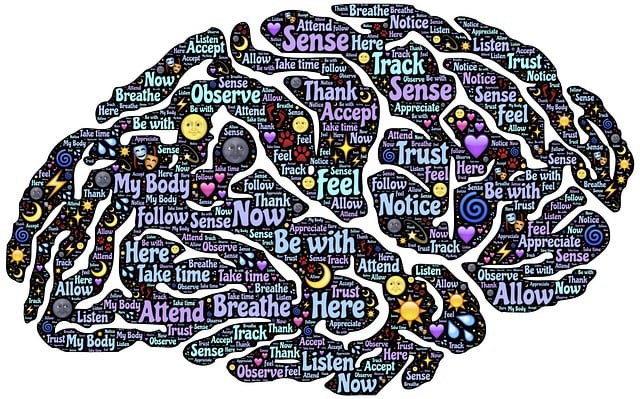Broomfield Relationship Issues Therapy (BRIT) utilizes structured assessments, clinical interviews, and data analysis to offer personalized relationship counseling. By integrating mental health data with policy advocacy, BRIT drives systemic change and improves access to effective care in Broomfield. Statistical modeling and machine learning algorithms help identify trends and tailor interventions like Resilience Building programs. Patient narratives, combined with qualitative data analysis, provide deep insights into individuals' emotional journeys and treatment progress. Integrating quantitative and qualitative data from various sources allows for a comprehensive understanding of mental health issues, leading to tailored interventions and strategies. Ethical practices, including privacy protection and cultural competency training, ensure that BRIT's data-driven approach is both innovative and inclusive.
Mental health data analysis is a powerful tool in understanding patient experiences, particularly in therapy settings. This article delves into the intricacies of analyzing and interpreting data from Broomfield Relationship Issues Therapy, exploring effective techniques for identifying patterns and trends. We discuss strategies to uncover insights from patient narratives, emphasizing the integration of quantitative and qualitative findings for comprehensive assessment. Additionally, ethical considerations and best practices are examined to ensure responsible interpretation.
- Understanding Mental Health Data Collection in Therapy Settings
- Data Analysis Techniques for Identifying Patterns and Trends
- Interpretive Strategies for Uncovering Insights from Patient Narratives
- Integrating Quantitative and Qualitative Findings for Comprehensive Assessment
- Ethical Considerations and Best Practices in Mental Health Data Interpretation
Understanding Mental Health Data Collection in Therapy Settings

In Broomfield Relationship Issues Therapy (BRIT) settings, understanding mental health data collection is paramount for effective treatment and policy analysis. Therapists employ structured assessments, clinical interviews, and standardized questionnaires to gather comprehensive patient information. These methods allow for a nuanced appreciation of individuals’ psychological states, facilitating personalized interventions aimed at addressing specific relationship issues. For instance, BRIT therapists may utilize tools that assess attachment styles, communication patterns, and conflict resolution strategies, providing valuable insights into the dynamic interplay between patients and their loved ones.
Integrating mental health data collection with policy analysis and advocacy is a powerful strategy to foster systemic change. By meticulously documenting treatment outcomes and patient progress, therapists contribute to evidence-based practices that inform Mental Health Policy Analysis and Advocacy. Moreover, highlighting successful resilience-building strategies and the benefits of Mindfulness Meditation can influence policy decisions, enhancing access to effective mental health care services in Broomfield and beyond.
Data Analysis Techniques for Identifying Patterns and Trends

In the realm of mental health data analysis, identifying patterns and trends is crucial for understanding client needs and tailoring effective treatments. Techniques such as statistical modeling and machine learning algorithms enable analysts to uncover insights hidden within vast datasets. By applying these methods, professionals can identify correlations between various factors, such as age, gender, and treatment outcomes, providing valuable information for Broomfield Relationship Issues Therapy. For instance, analysis might reveal that certain interventions are more successful in managing anxiety among younger adults or that specific therapeutic approaches have a positive impact on long-term recovery rates.
Furthermore, data analysis can facilitate the development of targeted interventions, such as Resilience Building programs and Trauma Support Services, by highlighting at-risk populations and the effectiveness of different compassion cultivation practices. This evidence-based approach ensures that mental health services are not only responsive to individual needs but also proactive in addressing emerging trends, ultimately enhancing the overall well-being of clients engaging in Broomfield Relationship Issues Therapy.
Interpretive Strategies for Uncovering Insights from Patient Narratives

Patient narratives offer a rich source of information for mental health professionals, providing insights into individuals’ lived experiences and emotional journeys. To uncover meaningful insights from these narratives, several interpretive strategies can be employed. One effective approach is to identify and analyze recurring themes within the patient’s stories. For instance, a therapist using Broomfield Relationship Issues Therapy techniques might notice patterns related to early life experiences or specific interpersonal challenges that consistently emerge in a client’s discussions. Recognizing these themes allows professionals to gain a deeper understanding of the individual’s emotional landscape and potential triggers for their mental health concerns.
Furthermore, qualitative data analysis methods can be utilized to identify shifts in language and sentiment over time. By examining changes in patients’ word choices and emotions expressed through narrative, therapists can assess progress and the effectiveness of implemented Stress Reduction Methods or Emotional Well-being Promotion Techniques. For example, improvements in self-esteem might be indicated by a shift from negative to more positive self-referents or increased use of affirmations within the patient’s narrative. This interpretive process enables professionals to tailor their approach, ensuring they employ appropriate Self-Esteem Improvement strategies for each unique client.
Integrating Quantitative and Qualitative Findings for Comprehensive Assessment

In mental health research, integrating quantitative and qualitative data offers a holistic approach to understanding complex issues like relationship problems, depression, and mood disorders. Quantitative methods provide numerical insights, enabling analysts to identify trends and patterns within large datasets, such as those collected by Broomfield Relationship Issues Therapy clinics. On the other hand, qualitative techniques, including in-depth interviews and focus groups, offer nuanced perspectives on individuals’ lived experiences, helping to contextualize statistical findings.
For a comprehensive assessment, researchers must bridge this gap between numbers and narratives. Qualitative data can enrich quantitative analyses by providing deeper understanding of participants’ perceptions, emotions, and behaviors, which may not be evident through metrics alone. This integrated approach is crucial for developing effective crisis intervention guidance, depression prevention strategies, and mood management techniques tailored to diverse populations.
Ethical Considerations and Best Practices in Mental Health Data Interpretation

In the realm of mental health data analysis and interpretation, ethical considerations are paramount. As healthcare providers delve into complex datasets to uncover trends and insights, they must navigate sensitive information related to individuals’ psychological well-being. This process demands a delicate balance between innovation and respect for privacy, confidentiality, and informed consent. For instance, when exploring the prevalence of Broomfield Relationship Issues Therapy among diverse demographics, researchers should ensure that data is anonymized and aggregated to protect identifiable personal details.
Adhering to best practices in mental health data interpretation involves fostering cultural competency training for healthcare providers. This equips them with the emotional intelligence needed to interpret data within the context of cultural nuances, thereby reducing the risk of perpetuating mental illness stigma. Additionally, continuous efforts towards mental illness stigma reduction are crucial, as they promote a more inclusive and supportive environment where individuals feel comfortable seeking help without fear of judgment. These collaborative initiatives, combined with robust data analysis methods, can lead to evidence-based interventions that cater to the diverse needs of those facing mental health challenges.
Mental health data analysis is a multifaceted process that, when executed ethically and effectively, can significantly enhance therapeutic outcomes. By combining quantitative techniques to identify patterns and trends with qualitative methods to interpret patient narratives, professionals in Broomfield Relationship Issues Therapy can gain profound insights into their clients’ experiences and needs. This integrated approach allows for more comprehensive assessments, enabling therapists to tailor interventions and foster better mental well-being. Adhering to best practices and ethical guidelines ensures that data analysis serves as a tool for positive change, benefiting both individuals and the field of therapy as a whole.














